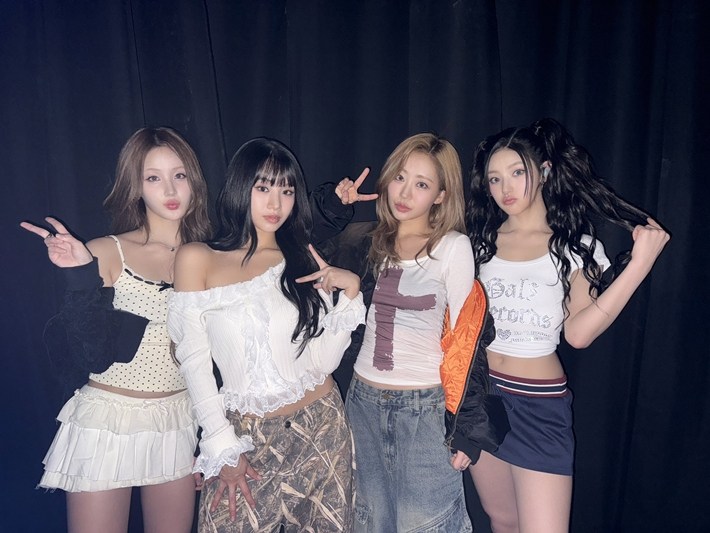ANN/THE KOREA HERALD – Kiss of Life, a K-pop girl group managed by S2 Entertainment, has come under fire for a livestreamed birthday party for one of its members that many viewers found culturally and racially insensitive.
The agency issued an official apology the following day and the group later shared a handwritten letter on social media addressing the criticisms. While K-pop agencies have increasingly made efforts to educate their artists on cultural sensitivities, historical context and even regional taboos, such controversies continue to resurface.
Kiss of Life livestreamed Julie’s birthday party themed around old-school hip-hop on April 2. The content quickly drew fire, as the bandmates appeared dressed in styles associated with Black rappers, mimicked African American Vernacular English and exaggerated gestures, which many of those watching deemed as racially insensitive.
Following the backlash, the agency deleted the video and issued an apology, saying, “We will take a more respectful and careful approach when incorporating cultural elements in the future.”
However, the issue continued to grow — particularly among international fans, and the girl group posted another apology via its official social media.
“Our intention was to show how much we loved the genre of old-school hip-hop because it greatly influences our music. … We realise now that our content was culturally insensitive and take full responsibility for our actions and can only promise to do better,” the group wrote.

A 33-year-old Black American entertainer based in Seoul pointed out that the biggest issue of Kiss of Life’s case isn’t necessarily the outfit, but rather the mannerism and acting the girl group exhibited.
“During the clip, they are seen adopting a ‘blaccent’ and imitating mannerisms they perceive to be stereotypical of Black American women,” the entertainer said on condition of anonymity, Monday. “Throughout this, they’re often giggling — as if mocking the way Black women interact. As a result, it feels like they see Black American culture as comical rather than inspirational.”
Grace Kao, a sociology professor at Yale University, also criticised the video clip.
“Cultural appropriation has to do with members of the majority group taking cultural aspects from a minority group and using it in a disrespectful manner. I think this is a simple example of mocking or a parody of a stereotype. Not a good look for anyone,” Kao said. “To many Americans, this would seem like mocking Black hip-hop artists. It does seem disrespectful.”
In 2019, Twice was criticised for mosque-like imagery used as a backdrop during a televised performance. Although the concept was said to have been inspired by Disney’s “Aladdin,” the inclusion of Islamic motifs, such as a crescent moon, prompted backlash from Muslim fans who called it culturally insensitive.
Mamamoo apologised in 2017 after using dark brown makeup to imitate Bruno Mars for a cover of “Uptown Funk,” a year after its member Hwasa faced criticism for singing a version of Beyonce’s “Irreplaceable” that included a racial slur.
Another girl group, Oh My Girl, has also faced repeated criticism for cultural missteps. In 2016, one of its music videos featured a Native American tipi, leading to accusations of cultural appropriation and boycott threats from Indigenous communities in the US.
“K-pop has been going global since the early 2010s, and these controversies have occurred regularly since then — often at least once a year,” said music critic Lee Hee-yun on Monday. “Given the history, most agencies have become more cautious, so for something like this to happen again points to a clear lack of attention.”
An entertainment industry official agreed, calling the agency’s oversight “careless.”
“These days, artists receive detailed cultural training before going on tour — including gender issues, regional sensitivities and even specific gestures to avoid,” the official said.
“It’s not just about touring anymore. Platforms like Weverse have increased direct communication between idols and global fans, so agencies have to be much more mindful,” the official added.


